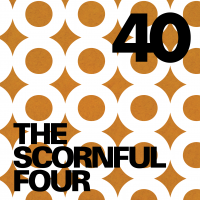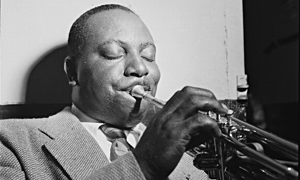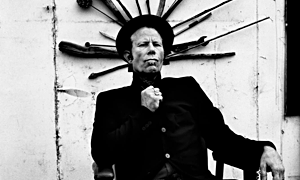Home » Jazz Articles » Book Review » The Essential W. Royal Stokes: Jazz, Blues, and Beyond 2020
The Essential W. Royal Stokes: Jazz, Blues, and Beyond 2020
 The Essential W. Royal Stokes: Jazz, Blues, and Beyond
The Essential W. Royal Stokes: Jazz, Blues, and Beyond W. Royal Stokes
560 Pages
ISBN: # 979-8611405475
Hannah Books
2020
Musician-actor Martin Mull once expressed that, "Writing about music is like dancing about architecture." That is certainly good for a laugh, but there is a lot of music out there and only a limited amount to time to listen. So how does one narrow the field? Listening to music—the activity that makes perfect sense for it—and then reading about it can deepen our appreciation for what's heard and introduce similar music made by others. Thus, if one is to read about music, someone must first write about music.
Dr. W. Royal Stokes has been writing about music (among many other things) for over 50 years. His musical posts have been featured in The New York Times, The Washington Post, Jazz Times, and DownBeat among many others. He is the author of several books, including The Jazz Scene: An Informal History from New Orleans to 1990 (Oxford University Press, 1991), Live the Jazz Life: Conversations with Forty Musicians About Their Careers in Jazz (Oxford University Press, 1999), and Growing Up With Jazz: Twenty-Four Musicians Talk about Their Lives and Careers (Oxford University Press, 2005). Before all of this, Stokes brooded over "the wine-dark sea" in his 1965 doctoral dissertation for Yale University, Studies in Homeric Formulas. A life lived in full, to be sure.
Dr. Stokes has now provided us a valedictory of a career well experienced and acted upon. The Essential W. Royal Stokes: Jazz, Blues, and Beyond collects the writer's output over the past 40 years in all of its different presentations: essays; interviews; reviews of performances, books, records, and videos; letters to editors; and a brief and insightful account of his experiences as a Classics professor. What is immediately apparent is that Stokes likes to write (which he does well) about his passions (of which he has many). Stokes possesses a deep knowledge from which there is much to learn, and he expresses this in a friendly, almost colloquial manner.
All of Stokes's writing is personal, displaying a searching mind that does not get bogged down in minutiae. Of the various writing mediums presented here, he proves to be a master of the interview. His method is "meat-and-potatoes": less interested in displaying his own considerable wares than being transparent to the responses of his interview subjects. He likes to set the stage and give the interviewee full reign. His empathic method is best defined in comparing his 1978 interview with traditional jazz trumpeter Ruby Braff and his 2008 interview with world pianist Omar Sosa. With Braff, Stokes begins immediately in the present, teasing out the trumpeter's attitude about contemporary jazz alongside Braff's more mainstream contemporary variety. With Sosa, Stokes seeks beginnings: childhood memories, influences, and a thorough background on this trend-setting artist. Stokes demonstrates a unique ability to approach his subjects from whichever perspective produces the most informative responses.
Stokes's performance reviews also make for exceptional reading. They tend to be short, pithy affairs crammed with observations, information, and reaction. Here and in his record reviews, Stokes displays the breadth of his cognitive reach. Whether Stokes is covering Art Pepper in 1980 or the Umbria Jazz Festival in 2000, he is there with contemporary insights and potent observations. He remains present and accounted for through his writing, which remains always about the artist—save for the single interview he gave trumpeter Dave Douglas, where the interviewer turns interviewee. It is great fun.
Writing about music and reading that writing is a valuable means of understanding what we hear. The listening experience alone is justification enough: how does the music make us feel? Of what does a piece of music remind us? At a minimum, this is all that is necessary for appreciating the art. Reading and writing about music deepens this pleasure and inquiry to a critical density of wonder and awe—two things W. Royal Stokes captures exceptionally in his writing.
Tags
Book Review
C. Michael Bailey
Ruby Braff
Omar Sosa
Art Pepper
Dave Douglas
W. Royal Stokes
The Essential W. Royal Stokes: Jazz, Blues, and Beyond
music criticism
Interviews
PREVIOUS / NEXT
Support All About Jazz
 All About Jazz has been a pillar of jazz since 1995, championing it as an art form and, more importantly, supporting the musicians who make it. Our enduring commitment has made "AAJ" one of the most culturally important websites of its kind, read by hundreds of thousands of fans, musicians and industry figures every month.
All About Jazz has been a pillar of jazz since 1995, championing it as an art form and, more importantly, supporting the musicians who make it. Our enduring commitment has made "AAJ" one of the most culturally important websites of its kind, read by hundreds of thousands of fans, musicians and industry figures every month.


























